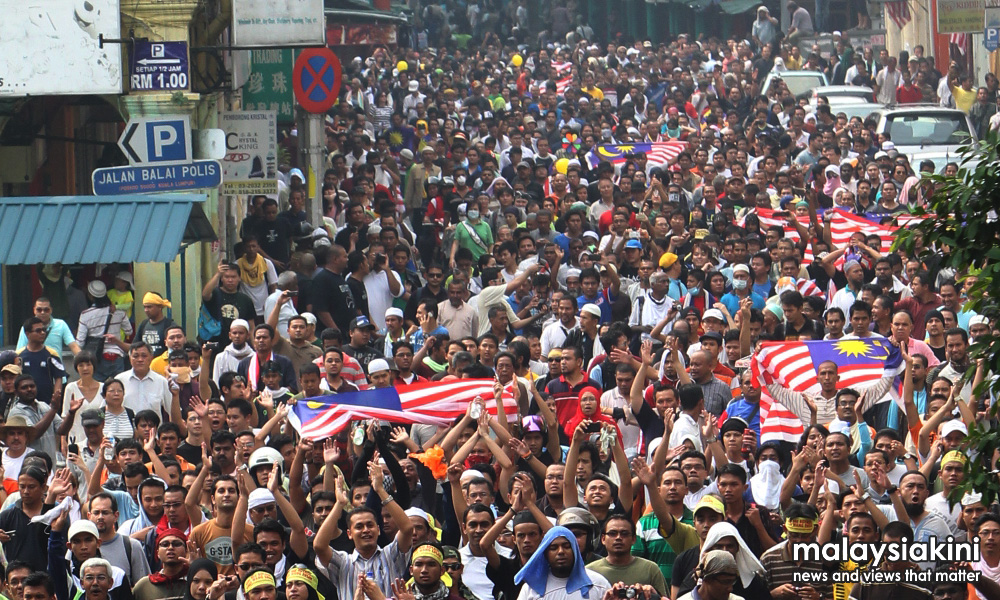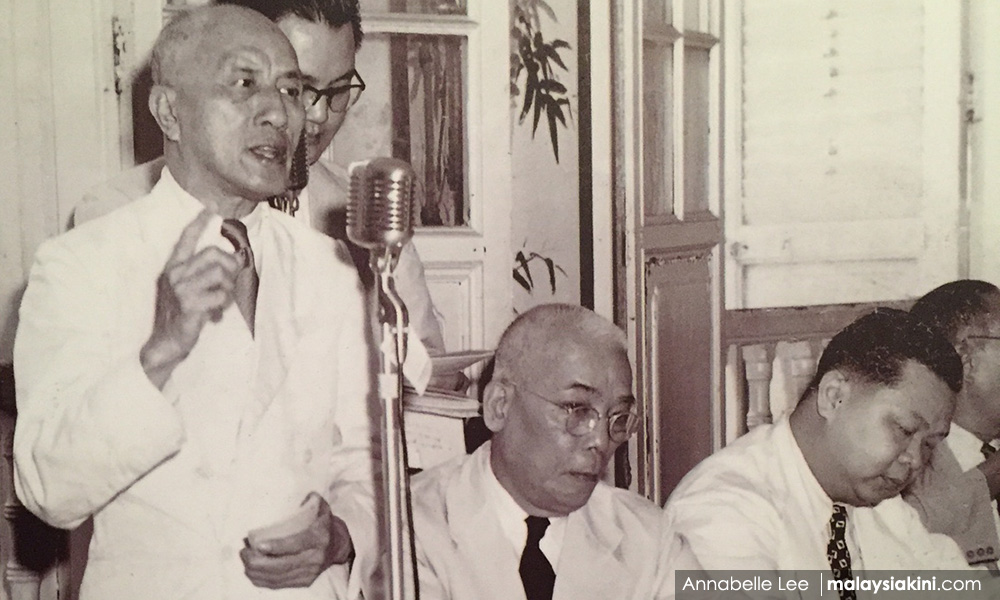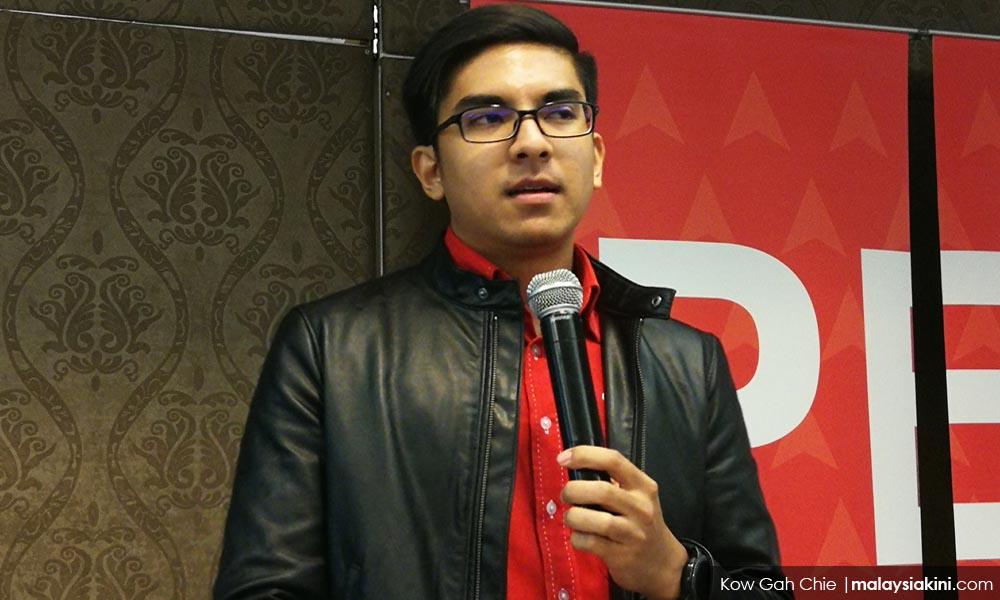
Imagine this. On May 10, 2018, the largest political party governing Malaysia will be a multiracial party. This has never happened before.
In GE14, Bersatu will contest 52 peninsula seats, PKR 51, DAP 35, and Amanah 27. While Bersatu will be contesting the largest number, most of their seats are tough seats at Umno strongholds.
And while PKR has one seat fewer than Bersatu, most of its seats are highly winnable marginal seats. This means that when the tsunami hits the shore, PKR may be the first and biggest beneficiary. Thus, in all likelihood, PKR will be the largest political party to govern the country.
This is a big deal. Because the dream all Malaysians have longed for – a truly multiracial society where all races can see beyond colour – might finally come true.
One of the biggest reasons for racial polarisation in our country is because our politics mainly revolve around single-race political parties.
From the very beginning, Umno, MCA, and MIC were given guardianship and protectorate roles for their respective racial communities.
All political parties have to cater for their own members first. Without the goodwill and reciprocity of their leaders, race-based compromises are hard to come by. Even with goodwill, necessary compromises will be viewed as ‘betrayal of their race’. This is a broken model.
The tragedy of single-race parties
When Tunku Abdul Rahman conducted a quid pro quo with the other race-based parties, he was often called out as being ‘too generous’ to his Chinese friends. Many extremists in Umno and PAS at that time believed the compromises were ‘betrayals’.

On the other end, Tan Cheng Lock of MCA (photo, standing left) was similarly lambasted by Chinese newspapers that called his party unreliable for working on a moderate approach to race-based policies. The same thing happened to MIC.
An immovable tragedy follows every single-race political party: to retain power, leaders of these parties have to appeal to narrow racial interests in their rhetoric and policies.
No matter how fair the compromise is, their political party will always feel their race is giving too much away. And when one party plays up the racial rhetoric, another party has to retaliate and play it up even more, lest they lose support.
All political parties play to their audiences first. And if your party consists only of members of one race, it’s hardly a priority for you to think about other races in your campaigns and policies.
Moderation has no place in race-based political parties.
Why Harapan is best positioned
That is why Pakatan Harapan, led by a multiracial PKR, is best placed to realise a country of a truly multiracial character.
At present, PKR has parliamentary representatives of all races and has at least one seat in every state of our diverse country. Its leadership line-up also reflects a multiracial composition.
But this then begs the question: What about the other component parties in Harapan?
It is true that Bersatu is a bumiputera-only party; Amanah a largely Malay-Muslim party, and DAP is still dominated by Chinese.
But the difference in all these parties compared to Umno, MIC, MCA is that they have shown true commitment in transitioning into a multiracial party and transforming Malaysia into a multiracial country.

Bersatu Youth chief Syed Saddiq Syed Abdul Rahman (photo) has declared that his party would press for lifting the bumiputera-only full membership restriction after Harapan governs for two terms.
While it remains an unbinding promise at present, the Youth wing has already taken steps to allocate non-bumiputera positions in their executive council.
Non-bumiputeras are also allowed to apply for limited associate membership in the party. This is certainly more progressive than Umno’s formula, and an early indication of things to come.
When the progressives split from PAS to form Amanah, they opened their party to non-Muslims to have full membership rights, including eligibility to hold leadership positions. The only caveat is that the president and deputy president of Amanah must have a firm commitment towards Islam.
The lack of non-Malay leaders in Amanah today is due more to the party being less well-known than any deliberate restriction.
As for DAP, the transition is even more obvious. They currently have more than a handful of non-Chinese elected representatives, and they are not afraid to field more non-Chinese candidates in GE14 to dispel the image of being a ‘chauvinist’ party.
The common thread in all these ‘transitioning’ parties is that they all share a commitment that is both serious and evident. When it comes to making policies, they understand that all races must have equal standing at the negotiation table so no one is left out of the equation.
Messy transition
Of course, this is not ideal. It is obviously better if all parties in Harapan are multiracial. However, a transition must come first.
We are a country that has been racially divided for over 200 years in a long episode for the commercial gain of colonial Britain, for the convenience of Merdeka-era BN, and for retention of power by the present-day Umno.
In other words, it’s impossible to realise a colour-blind Malaysia in one day, one week or even one generation. Any transition into that ideal could either come violently and instantly, or peacefully and gradually.
And if we concede that the latter path is preferable for modern Malaysia, then we also have to accept that such transitions require a combination of the old and new – the old of Dr Mahathir Mohamad and the new of Syed Saddiq; of Lim Kit Siang and Liew Chin Tong; of Mohammad Sabu and Faiz Fadzil; of Anwar Ibrahim and Rafizi Ramli.
A multiracial party like PKR cannot yet win elections without the help from Bersatu, Amanah and DAP to appeal to conservative voters.
These voters need to be assured that race-based compromises will not turn them into strangers in their own land. To manoeuvre this well, politicians are required to have an appreciation of history, a wide capacity for empathy, and a foresight for an egalitarian society.
Progress is not a straight line. Sometimes we need to take a longer path to get to that promised land – where we get closer to the soul of being one people, where we rejoice in our common heritage and usher in the will to live together peacefully.
The good news is, we know where we’re going - and Harapan can take us there.
JAMES CHAI works at a law firm. His voyage in life is made less lonely with a family of deep love, friends of good humour and teachers of selfless givings. This affirms his conviction in the common goodness of people: the better angels of our nature. He tweets at @JamesJSChai.
https://twitter.com/JamesJSChai - Mkini
https://twitter.com/JamesJSChai - Mkini


No comments:
Post a Comment
Note: Only a member of this blog may post a comment.